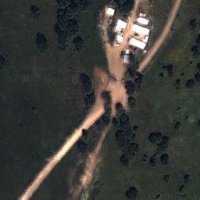Bulgaria says that it supports the steps taken by Kosovo and Macedonia in signing a final agreement between Pristina and Skopje on the two countries’ borders, the Foreign Ministry in Sofia said in a statement on October 20 2009.
"We appreciate these arrangements as an expression of the policy of good neighbourly relations, following which we have always thought as a key condition for EU and Nato integration of the Western Balkans," the Foreign Ministry said.
Bulgaria said that it welcomed the readiness of Kosovo and Macedonia to resolve such issues bilaterally, adding that this would benefit citizens of both countries.
In 2008, Bulgaria annoyed Serbia by joining in the recognition of Kosovo of independent, and recognises Macedonia by that name. Skopje and Athens are locked in a dispute about the use of the name Macedonia which, so far, has defied United Nations-brokered attempts to resolve the matter.
Sofia may be content with the resolution of the border dispute but, going by local media reports, not everyone in Kosovo and Macedonia is happy.
In Kosovo, people in a municipality near the border said that they would protest, alleging that Macedonia had acquired 22ha of private land through the border demarcation.
Kosovo daily Zeri quoted "security experts" as saying that the matter was a continuing issue, hinting that Serbian secret services had a hand in stoking up emotions.
Kosovo government spokesperson Memli Krasniqi was quoted by Zeri as saying that the land that was there was not lost and people living in the area would have access to their private properties.
Across the border, Branko Crvenkovski, leader of Macedonia’s Social Democratic League, said that the government had allowed an exchange of land by which Macedonia had lost.
The border deal was not a technical one, but an exchange of territory which, in terms of the constitution, required a referendum and a two-thirds majority vote to approve, Crvenkovski said.



